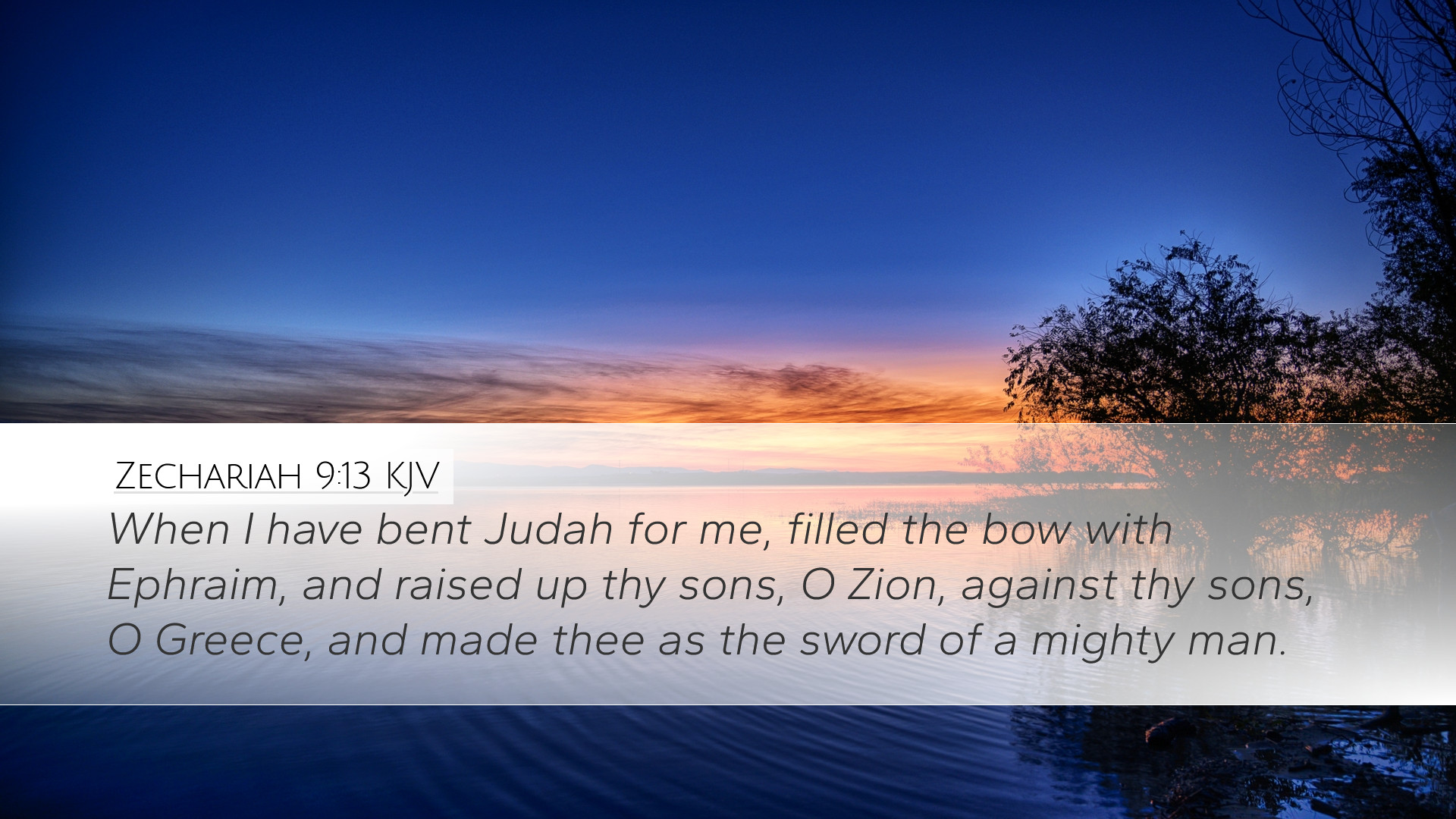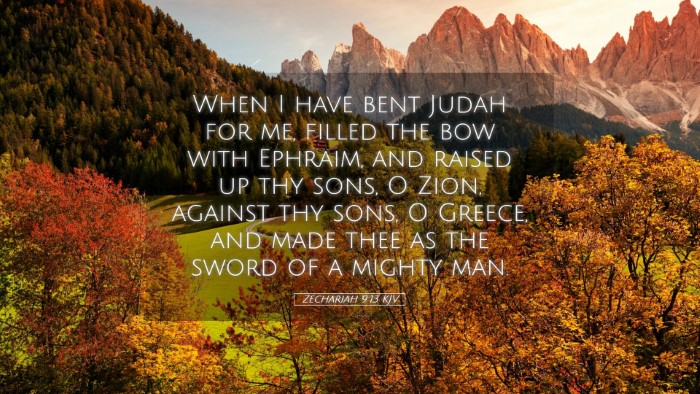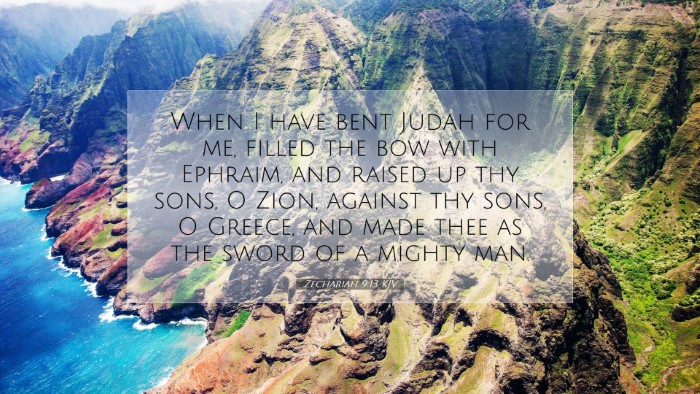Old Testament
Genesis Exodus Leviticus Numbers Deuteronomy Joshua Judges Ruth 1 Samuel 2 Samuel 1 Kings 2 Kings 1 Chronicles 2 Chronicles Ezra Nehemiah Esther Job Psalms Proverbs Ecclesiastes Song of Solomon Isaiah Jeremiah Lamentations Ezekiel Daniel Hosea Joel Amos Obadiah Jonah Micah Nahum Habakkuk Zephaniah Haggai Zechariah MalachiZechariah 9:13
Zechariah 9:13 KJV
When I have bent Judah for me, filled the bow with Ephraim, and raised up thy sons, O Zion, against thy sons, O Greece, and made thee as the sword of a mighty man.
Zechariah 9:13 Bible Commentary
Commentary on Zechariah 9:13
Zechariah 9:13 states, "For I have bent Judah my bow, filled the bow with Ephraim, and raised up thy sons, O Zion, against thy sons, O Greece, and made thee as the sword of a mighty man." This verse carries profound implications for God's people, drawing on the themes of divine power, empowerment of the faithful, and the promise of victory over adversarial forces.
Introduction
In this verse, Zechariah presents a vivid imagery of God engaging in the battle on behalf of His people, Judah. This passage can be appreciated through several commentaries which elaborate on the theological and contextual significance of the message delivered through the prophet.
Insights from Matthew Henry
Matthew Henry emphasizes God's sovereign action in the restoration of His people. He explains that the phrase “bent Judah my bow” signifies God’s empowering of Judah (representing the faithful remnant) to project strength and purpose. Henry remarks:
"God uses His people as instruments in His hands to accomplish His purposes, arming them with His strength against their foes."
Henry goes on to describe the dynamics between Judah and Ephraim, indicating their unity in opposition to those who threaten them. The “sons of Greece” symbolizes external powers that may seem strong, yet they are ultimately subjected to the will of God.
Insights from Adam Clarke
Adam Clarke presents a detailed historical context regarding the animosities and divisions among the tribes of Israel. He interprets "Judah" as the principal tribe of the Southern Kingdom and "Ephraim" as representative of the Northern Kingdom. Clarke notes:
"The former animosities between Ephraim and Judah will be replaced by a divine unity as God unites them to combat formidable enemies."
Clarke stresses that this unification represents not just physical warfare but spiritual preparedness, calling God's people to rise and take action through divine empowerment.
Insights from Albert Barnes
Albert Barnes points out the prophetic nature of this verse, noting its dual application to both ancient Israel and future eschatological events. He articulates:
"This foretells, not only victories in temporal battles but also the ultimate triumph of divine truth over the adversarial forces of the world."
Barnes suggests that the mention of “Greece” could symbolize the larger, gentile world in opposition to God's people, reinforcing the idea that opposition may arise from unexpected places but not deter God's sovereign plan.
Theological Implications
The combined commentary from these scholars produces a robust understanding of the significance of Zechariah 9:13:
- Divine Empowerment: God equips His people for spiritual warfare.
- Unity Among Believers: Historically divided groups within Israel (Judah and Ephraim) are called to unite against common enemies.
- Victory Over Adversaries: The external threats (symbolized by Greece) are ultimately powerless against God’s purpose.
Application for Today
This verse speaks powerfully to modern believers, pastors, and theologians who navigate the complexities of spiritual warfare in today's context. The insights provided by these commentaries compel us to:
- Recognize God's empowering presence in challenges.
- Seek out unity among different factions within the church to stand firm against common adversity.
- Understand that God’s sovereignty prevails in the midst of opposition.
Conclusion
Zechariah 9:13 is not merely an historical narrative; it is a declaration of God’s capabilities and promises for His people. The collaborative insights from public domain commentaries like those of Matthew Henry, Adam Clarke, and Albert Barnes offer a rich tapestry of understanding that encourages a faithful response rooted in theological depth and communal strength.


